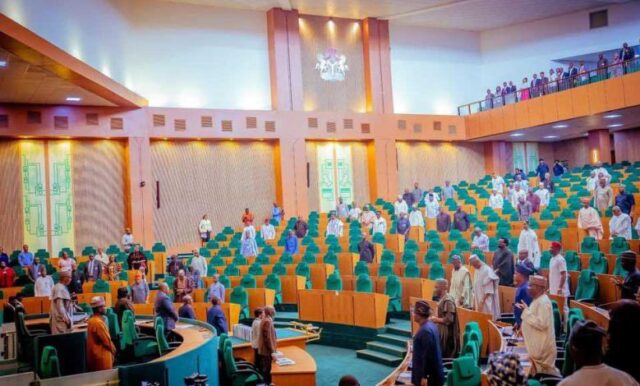The House of Representatives has called on the Central Bank of Nigeria (CBN) to suspend its reported plan to retire 1,000 staff members, citing concerns over transparency, due process, and adherence to labour laws.
Proposed Retirement and Financial Implications
The CBN’s planned retirement reportedly includes a severance package totaling over ₦50 billion, raising questions about the criteria for selection and oversight of the payout process.
House’s Resolution and Investigation
During a plenary session on Tuesday, lawmakers resolved to establish an ad hoc committee to investigate the “process and legality” of the exercise. The committee is tasked with ensuring transparency, accountability, and proper utilization of funds and is expected to submit its findings within four weeks.
The motion, sponsored by Kama Nkemkama, a lawmaker from Ebonyi State, highlighted critical socio-economic and financial concerns tied to the retirement plan.
Key Concerns Raised by Lawmakers
- Selection Criteria: Nkemkama questioned the sudden nature of the retirement and whether it adheres to public service guidelines and labour laws.
- Socio-Economic Impact: The proposed decision could increase unemployment, negatively affect the dependents of the retired staff, and fuel public dissatisfaction.
- Risk of Mismanagement: The ₦50 billion severance package was flagged as potentially vulnerable to mismanagement and abuse, given the lack of sufficient accountability and oversight mechanisms.
“Such a significant decision has socio-economic implications for the affected individuals, their dependents, and the broader economy,” Nkemkama warned during the session.
Actions Taken by the House
The motion, adopted through a voice vote led by Speaker Tajudeen Abbas, prompted the following actions:
- Investigation: An ad hoc committee will investigate the retirement exercise and its alignment with public service standards.
- Labour Ministry’s Role: The Ministry of Labour and Employment has been tasked to ensure the protection of the rights of the affected staff.
Broader Implications
The resolution underscores the House’s commitment to protecting public sector workers and ensuring transparency in significant financial decisions, particularly in sectors vital to Nigeria’s financial stability.





























